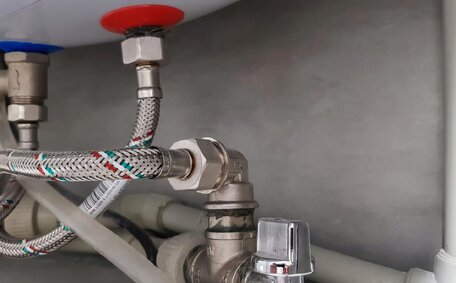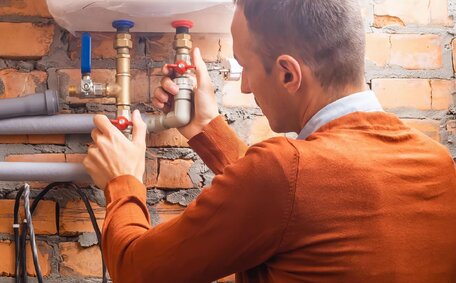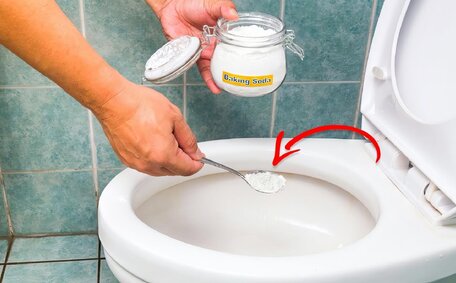Introduction: Why Proper Drain Use Matters
The items households allow to go down their drains have significant consequences. Disposing of fats, oils, grease, or hazardous chemicals down the sink can inflict damage on plumbing systems and necessitate costly repairs due to blocked drains or damaged pipes. It also imposes additional strain on water treatment facilities striving to purify the water down before its release into the environment.
This article advises on items you should never dispose of in your drains, such as wet wipes and coffee grounds. We detail the problems arising from the disposal of products such as motor oil, cat litter, or leftover paint down the drain. Peruse further for practical guidance on what can be properly disposed of as household waste to evade plumbing disasters.
Knowing what to dispose of via the drain is key to preserving your plumbing system and avoiding clogs in the water supply. Small habit changes, such as being mindful about what enters your kitchen drain, can prevent expensive callouts to clear fatbergs or repair burst pipes in wastewater networks. Most crucially, keeping drains and your garbage disposal units clear of harmful substances secures that our wastewater is effectively filtered before flowing into rivers or oceans, sidestepping damage to the pipes they can cause.
Clogging Culprits: Foods That Can Cause Drain Blockages
Many common food items that should never go down your kitchen sink can cause nasty clogs. Refrain from disposing of these food items in your kitchen sink:
- Coffee grounds - Such compact particles are adept at clumping together within your pipes, culminating in clogged drains.
- Egg shells - Eggshells resist breakdown and can easily clog your plumbing.
- Fruit and vegetable peels - Thick skins from citrus fruits, potatoes or onions can get stuck, creating obstructions and snagging on pipe joints.
- Greasy leftovers - Solidified fats, oils, and grease can obstruct pipes, and hot water is not a remedy.
- Pasta rice - These starch-heavy foods along with paper towel remnants can swell up with water and stick to pipes.
- Paper towels - Even though they appear similar to toilet paper, paper towels are much tougher and can easily cause blockages.
Consider alternatives such as adding appropriate scraps to a compost heap or using baking soda and vinegar solutions to clean and refresh drains. For other items, like organic waste, dispose them into compost bin as an eco-friendly alternative. Following these guidelines prevents avoidable drain blockages.
Oils and Greases: The Slippery Slope to Clogs
Oils and greases you should never pour down drain. Though liquid when hot, these substances solidify as they cool, and the residue inside a drain can cause pronounced blockages. Fatty oils and greasy food residues leave a clinging film along pipe walls that captures debris passing through your pipes.
Thick layers of solidified fats, oils, and grease can accumulate over time, restricting water flow in your drains. These small clogs can escalate into larger obstructions, necessitating professional drain cleaning. In severe cases, grease-laden lines can rupture and overflow raw sewage into streets or waterways, contributing to sewer line issues.
Safe alternatives that should go to disposal centres exist rather than having them poured down drain can, for disposing cooking oils, bacon fat and meat juices. We strongly recommend collecting liquid waste in sealed containers and taking it to certified recycling centres to mitigate environmental harm. You can mix some types of grease with kitty litter to solidify them for landfill disposal.
It’s essential to avoid disposing of oils, fats, or greases down your kitchen drain. These substances can create costly plumbing issues by significantly damaging your pipes. Protect your disposal unit and the environment by repurposing these hazardous kitchen byproducts.
Down the Drain Dangers: Hazardous Household Items
Household substances, including leftover paint, pesticides, medications, and automotive fluids, must never be discarded down the drain. These toxic materials can harm your septic sewer system and bypass it, contaminating waterways and posing risks to wildlife and human health.
Instead of pouring hazardous liquids down your drain, bring them to council-run facilities on scheduled household waste disposal days. Leftover paint cans, for example, can go to recycling centres rather than be poured into your sink. Unused medications should be responsibly disposed of in pharmacy take-back programmes to prevent them from mingling with wastewater.
Other hazardous items that pose significant risks when flushed down the toilet include:
- Bleaches, acids, alkalis or solvent cleaners
- Pesticides, herbicides or fertilisers
- Motor oils, fuels, or antifreeze
- Paints, stains, varnishes or thinners
- Medications, vitamins or supplements
These hazardous household items require special disposal to protect your drain garbage handling systems and our wastewater infrastructure. Carelessly draining them poisons water ecosystems, damages treatment equipment, and risks blockages forming further along sewer lines.
Flushing Follies: Rethinking the Toilet
Many people wrongly assume that personal hygiene products and other common bathroom items can be safely flushed down toilets. However, "flushable" wipes, cotton buds, dental floss and sanitary items often fail to break down when flushed down toilet. They tangle around internal pipes and mechanical equipment at wastewater plants.
To prevent damage to the sewage infrastructure and avoid plumbing mishaps, flush only toilet paper and human waste, not sanitary products. Tangled wads of wipes also jam pumps and filters at sewage treatment works.
Likewise, never flush:
- Tampons or sanitary pads - you should immediately throw them away in the bin
- Cotton balls/buds - bin them
- Dental floss - bin it
- Condoms - bin them
- Diapers - seal and bin them
Contrary to misconceptions, these bathroom items should be discarded in the garbage, not the wastewater system. Likewise for other hazardous fluids like paints or motor oils. Keep them out of toilets and drains altogether.
Reconsider what you flush down the toilet. Flush only human waste and toilet paper. Dispose the rest in bins to avoid plumbing disasters.
Eco Impacts: Protecting Pipes and Waterways
Disposing of household waste down your drain has far-reaching effects, extending beyond mere pipe blockages. When fats, chemicals or debris enter local sewer lines, many substances bypass sewage treatment plants to pollute rivers, lakes and oceans.
Sewage overflows prompted by blockages not only spill raw sewage into our environs but can also damage your plumbing. Just a small quantity of motor oil for example can contaminate enormous volumes of water.
Likewise, flushing medications adds trace chemical residues that damage marine life unable to process them. Native fish, plants and other organisms essential to balanced freshwater and saltwater ecosystems suffer the consequences of contamination.
By avoiding the misuse of sewer infrastructure and keeping drains clear, we protect our homes, preserve the environment, and maintain clean waterways. Efficient waste disposal ensures sewage treatment plants function effectively, preventing drain blockages and purifying water before it’s returned to the environment.
The next time you pour cooking oil or a leftover chemical down the drain, consider the potential impact.
Will it clog your pipes or find their way to cause issues further downstream? Could it end up flowing into local rivers, lakes or beaches? Rethink casual disposal of household substances. Adhering to responsible disposal methods prevents contaminants from entering our ecosystems.
Disposal Dos and Don'ts: Proper Alternatives
Many items, along with all other substances that should not go down drains, still require proper disposal. Here are suggested methods for getting rid of common household substances safely and responsibly:
Food Waste
- Compost suitable scraps like fruit peels or coffee grounds instead of attempting to flush them down your toilet
- Freeze meat trimmings or leftover grease to solidify for landfill disposal
- Place food particles that could clog drains in the garbage
Chemicals
- Recycle paints, pesticides, cleaning products and automobile fluids at council facilities
- Return medications to pharmacy take-back programmes
- Check for hazardous waste collection days to dispose of toxic substances
Personal Hygiene Items
- Place tampons, pads, dental floss and condoms in the bin - never the toilet
- Wipes and cotton swabs also go in the garbage, not down the drain
Responsible disposal practices protect not only your home’s plumbing system and sewer infrastructure but also the broader environment. Small daily actions create positive effects across local water systems and ensure waste doesn’t make their way into delicate ecosystems.
Conclusion: Next Steps for Responsible Drain Use
When disposing of leftovers or chemicals, be mindful of their potential impact on pipes, waterways, and wildlife. Small daily actions create ripple effects across local ecosystems.
This article outlined common drain clogging culprits and why it’s a good idea to consider disposal alternatives to avoid plumbing disasters. To keep drains unobstructed, properly dispose of fats, food scraps, and hazardous liquids. Only human waste and toilet paper should be flushed down, ensuring nothing else will make their way into the sewer lines.
Likewise, “flushable” wipes, sanitary items, and dental floss go in the bin, not your toilet. Many incorrectly believe these items will dissolve when flushed, yet they end up tangling in pipes and creating issues in sewage infrastructure.
Repurpose suitable foodstuffs through composting or council collection services. Return toxic household chemicals like cleaning products, paints, or motor oils for safe recycling or disposal. Contact your local council for guidance handling hazardous materials.
Blocked drains can cause sewage to overflow into our streets and waterways, spreading pollution. Keep your kitchen sink, your shower drain, and toilets free of damaging debris. Learn what not to put down each drain to maintain your plumbing and safeguard ecosystems.
For in-depth advice on resolving clogs or conducting plumbing repairs, be sure to reach out to our North Epping Plumbing specialists. With 24/7 services, we can assess issues and advise on drain cleaning or pipe repairs if needed. Invest today to avoid greater plumbing problems tomorrow.






